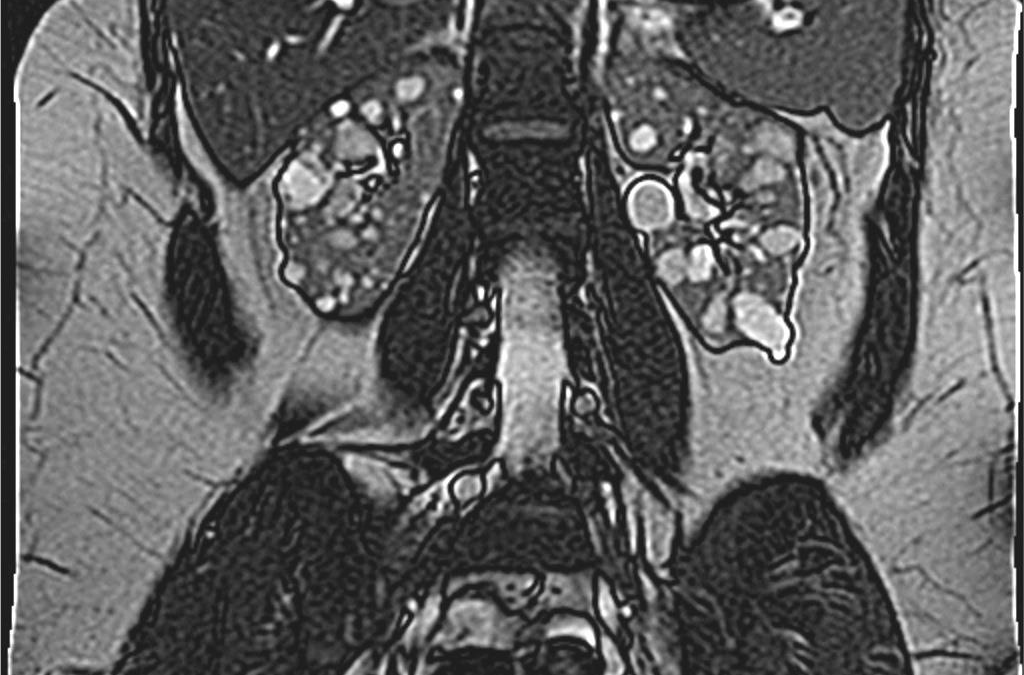Autosomal dominant polycystic kidney disease (ADPKD), one of the most common life-threatening hereditary diseases, is being diagnosed at an earlier age thanks to new technologies and an increased awareness of the disease among health care professionals. Thus, individuals afflicted by this condition are often diagnosed before they are ready to start a family, and are more likely to seek out information on preimplantation genetic testing or PGT for ADPKD, formerly referred to as PGD for ADPKD.
Finding stories from actual patients with the disease as they go through the in vitro fertilization (IVF) with PGT process are few and far between. However, there is a new study published in the American Journal of Kidney Disease that provides some insight on what factors influence patients to seek PGT for ADPKD, with a focus on one woman’s experience.
This article will explore this study as well as provide some additional in-depth information from a correspondence with Dr. Neera Dahl, Associate Professor of Medicine (Nephrology) at Yale University School of Medicine, principal investigator of the study. The research team did an in-depth case review of one 31-year-old woman (whom we will refer to as “Mary” in this article) and a medical record review of seven other women, all of whom underwent PGT for ADPKD.
The Case Study: “Mary”
Mary developed symptoms of ADPKD in her 20s, just like her mother. She had small kidneys with numerous cysts, which greatly impacted their ability to function normally. Kidneys are essential organs that play an important role in several systems including filtering waste from blood and releasing hormones to regulate blood pressure. Mary developed high blood pressure (hypertension) at 29 years old, and had a history of high blood pressure (preeclampsia) with her first pregnancy, which was naturally conceived.
While he never had an official diagnosis, Mary’s maternal grandfather most likely had ADPKD since he had a fatal brain-bleed (cerebellar hemorrhage) at 48 years old. Mary grew up watching her mother, diagnosed with ADPKD in her mid-20s, struggle with the disease. At the time of the publication, her mother had stage 4 chronic kidney disease, which requires regular dialysis or a kidney transplant in the near future.
Mary’s genetic test revealed that she had a single base-pair change in the PKD1 gene, which has been observed to cause severe symptoms in early adulthood in other individuals with ADPKD. When she decided to start a family, Mary and her partner decided to work with a fertility clinic to test her embryos for ADPKD using IVF with PGT. It is known that designing a PGT test for PKD1 mutations is tricky because this gene has six different pseudogenes. Thus, the laboratory asked for blood samples from Mary’s affected mother and unaffected partner to look at other unique markers that surround the PKD1 mutation, which makes the PGT test more accurate.
Mary underwent the first IVF cycle, which produced two embryos. Only one of the embryos was negative for the PKD1 mutation and was chromosomally normal. Unfortunately, the transfer of that embryo did not result in a pregnancy. During the second IVF cycle, only one out of nine embryos available for testing was negative for ADPKD and was chromosomally normal. Thankfully, Mary became pregnant after that embryo was transferred, which resulted in a healthy, 5 lb. 8 oz. baby girl. “This patient did well throughout her pregnancy until being diagnosed with worsening hypertension at 37 weeks gestation after which she was subsequently induced,” said Dr. Dahl. “She developed preeclampsia requiring specialized treatment and monitoring. Post-partum, the patient has had persistent hypertension requiring therapy.”
Choosing to Do PGT
“Factors that may lead to patient interest in PGT include a family history of early onset or more severe ADPKD manifestations such as intracranial aneurysm rupture (brain aneurysm), complications of hepatic cysts (sacs of fluid in the liver), or early death,” said Dr. Dahl. “In general, women or couples pursue PGT and prenatal diagnosis for single gene disorders when the burden of the disease is perceived to be high, and decline to pursue these options when the disease burden is perceived to be low. Therefore, patients who have had family members with severe disease diminishing their quality of life may be more inclined to choose PGT.”
While not explored within this research study, some women with ADPKD may choose to work with a surrogate because they are afraid of experiencing pregnancy complications and/or increasing life-threatening symptoms, such as hypertension and aneurysms. “Data from older literature suggests that after three pregnancies there is an increased risk of end-stage renal disease (ESRD),” said Dr. Dahl. “However, that has not been replicated in some of the more recent studies and there is no documented increased risk of cerebral aneurysm or hemorrhage with pregnancy. Pregnant women with ADPKD, however, should be monitored closely for the development of hypertension and urinary tract infections.”
Pre and Postnatal Testing of ADPKD
One interesting finding is that Mary and the seven other patients tended not to do prenatal diagnosis to confirm that the fetus did not have ADPKD, even though it is recommended by the American College of Obstetrics and Gynecology (ACOG), since there is about a one percent chance that PGT will miss an embryo that is actually affected by the disease. “If PGD is performed for a serious disabling or lethal childhood onset disorder, prenatal diagnosis is strongly recommended to confirm the results of PGD if the mother would consider pregnancy termination of an affected fetus,” said Dr. Dahl. “However, the situation is very different for mid-life onset disorders such as ADPKD where there can be decades of normal life prior to onset of symptoms. For such disorders, most couples would not consider pregnancy termination even if the fetus turned out to be affected, and therefore don’t want to expose a pregnancy to the small risk of miscarriage associated with invasive testing such as CVS or amniocentesis.”
In addition to prenatal testing, postnatal confirmatory testing should be performed to avoid the situation where an individual is incorrectly assumed to be unaffected by ADPKD, according to ACOG. Unlike prenatal testing, where the procedure can cause a slight risk of miscarriage, postnatal testing only involves a blood test. In the one percent of cases where the baby actually does have ADPKD when the PGT was negative, failing to diagnose the child before symptoms develop could lead to adverse health consequences that could have been avoided. Yet, many patients, including Mary, do not have their baby tested shortly after birth.
“Failure to communicate the importance of postnatal confirmatory diagnosis to the patient and her medical care providers might account for the failure of this testing to be accomplished,” said Dr. Dahl. “Better communication about this recommendation between the nephrologist, the couple’s fertility specialists, obstetrician, and the family’s pediatrician about the importance of postnatal confirmation of the diagnosis of ADPKD would increase the likelihood of confirmatory testing being accomplished.”
Spreading the Word About PGT
Whether or not patients with a genetic condition ultimately pursue PGT to start their families, there needs to be more consistency with making patients aware of this option. As in the case of ADPKD, “It is our opinion that all nephrologists should feel comfortable initiating a dialogue with their affected patients regarding the reproductive options that are currently available,” said Dr. Dahl. “All patients who are of childbearing potential or who might consider having children in the future would benefit from reproductive counseling. Physicians should revisit this discussion as patients and their partners feel ready to begin discussing family-planning.”
Other specialists, like oncologists with patients who may be at risk for a hereditary cancer syndrome, should be aware of PGT as an option. Patients also must take responsibility to educate themselves about their options so that they can be armed with questions at their medical appointments.
[cf]skyword_tracking_tag[/cf]

Leslie is a board-certified clinical genetic counselor and former Program Manager for the preimplantation genetic testing (PGT) program of the ORM Genomics team and former Project Manager for SharingHealthyGenes.com. She completed her Bachelor’s degree at DePauw University and her Master’s degree in Genetic Counseling at the University of Texas Graduate School of Biomedical Sciences at Houston. Since graduating in 2000, she has worked as a clinical genetic counselor in several specialties including prenatal, pediatric and cancer genetics and has been very involved with the National Society of Genetic Counselors.
